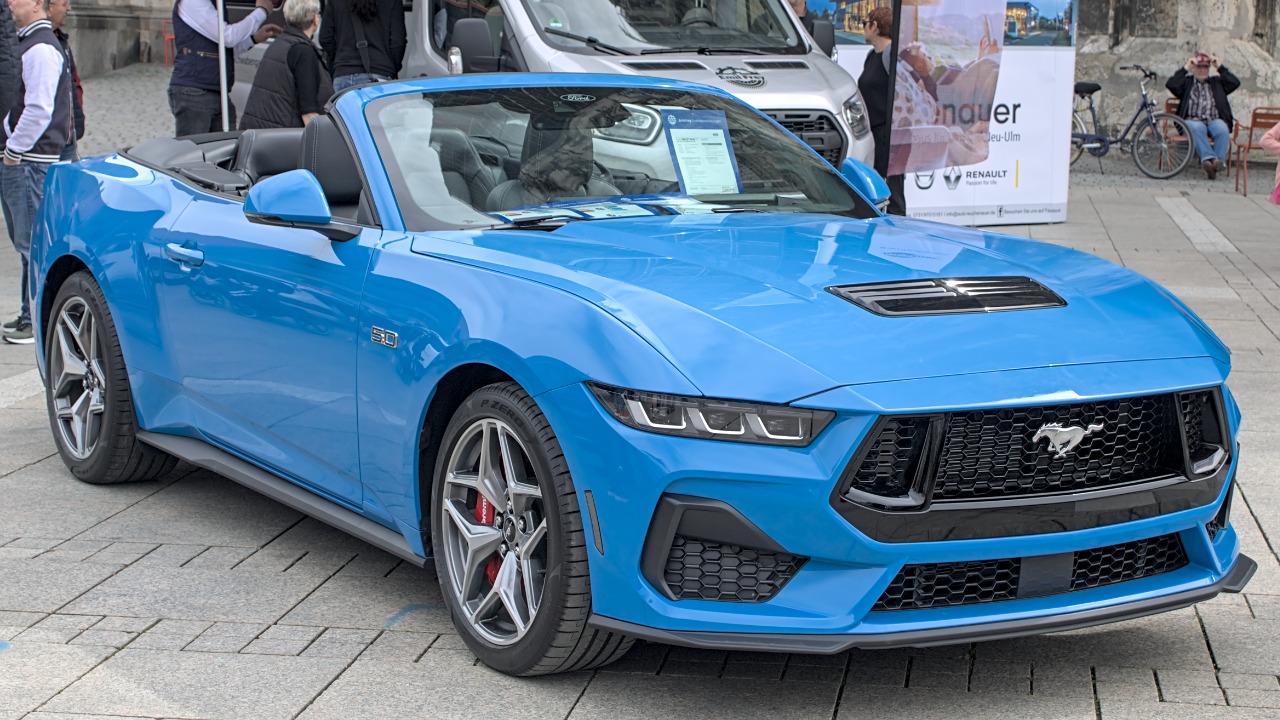
As the automotive world eagerly anticipates the release of the next Ford Mustang, there are concerns it might not live up to its iconic status. From design choices to market dynamics, several factors could impact its success. Here are eight reasons the next Mustang could potentially struggle.
Design Deviations

One major concern is the possibility of design deviations that stray too far from the Mustang’s classic look. While innovation is important, deviating excessively from the familiar design could alienate loyal fans. The Mustang has a rich heritage, and a drastic redesign might not resonate with enthusiasts who cherish the traditional aesthetics.
Contemporary trends in automotive design favor sleek, futuristic looks, but balancing innovation with tradition is crucial. If Ford opts for a radical redesign, it risks losing the nostalgic appeal that has been central to the Mustang’s enduring popularity.
High Price Tag

The next Mustang might come with a hefty price tag, potentially putting it out of reach for many potential buyers. As production costs rise and technology becomes more sophisticated, the cost to consumers is likely to increase. This could limit the vehicle’s accessibility to a wider audience.
For many enthusiasts, the Mustang represents an attainable dream car. If prices climb too steeply, Ford risks alienating its core consumer base, which could significantly impact sales figures.
Lack of Performance Innovations

Performance has always been a key selling point for the Mustang. If the new model lacks significant performance innovations, it could fall behind competitors who are pushing the boundaries of speed and efficiency. Innovations in engine technology and driving dynamics are crucial to keeping the Mustang at the forefront of the muscle car segment.
With other automakers investing heavily in electric and hybrid technologies, the Mustang needs to demonstrate comparable advancements to remain competitive. Without new developments, it may struggle to appeal to performance-oriented buyers.
Ineffective Marketing Strategies

Even the most well-designed car can struggle if it isn’t marketed effectively. If Ford fails to create compelling and targeted marketing strategies, the next Mustang might not reach its intended audience. Previous sales slumps have demonstrated the importance of strong and innovative marketing campaigns.
Capturing the attention of younger, tech-savvy consumers is essential. Traditional marketing strategies may not suffice, and Ford may need to explore new digital marketing techniques to engage potential buyers effectively.
Competition Advancements

As competitors advance, the Mustang faces increased pressure to keep up. Other manufacturers are investing in cutting-edge technologies and design features that could outshine what the Mustang offers. The emergence of electric and hybrid vehicles adds another layer of competition.
Brands like Tesla are setting new standards for performance and innovation. If the Mustang cannot match or exceed these advancements, it risks being overshadowed by more progressive offerings in the market.
Environmental Regulations

With stricter environmental regulations coming into effect worldwide, the Mustang may face challenges if it doesn’t align with these standards. Emissions restrictions and fuel efficiency mandates mean that traditional high-performance engines may need to be reimagined.
Ford will need to innovate to ensure the Mustang meets these regulations while maintaining its performance pedigree. If not, it risks losing appeal in an increasingly environmentally-conscious market.
Consumer Preference Shifts

Consumer preferences are shifting towards more sustainable and versatile vehicles. The traditional muscle car market is evolving, with many buyers opting for SUVs and crossovers that offer more practicality. If the Mustang doesn’t adapt to these changes, it may struggle to maintain its market share.
The allure of a powerful sports car is undeniable, but practicality and sustainability are becoming more significant factors in purchasing decisions. Ford needs to address these changing preferences to keep the Mustang relevant.
Supply Chain Issues

Global supply chain disruptions have affected many industries, including automotive manufacturing. If Ford faces supply chain issues, it could delay production and distribution of the next Mustang. This could lead to significant setbacks in meeting consumer demand.
Ensuring a steady supply of components and materials is vital to avoid production bottlenecks. Ford must address these potential issues to ensure a smooth launch and meet the expectations of eager buyers.